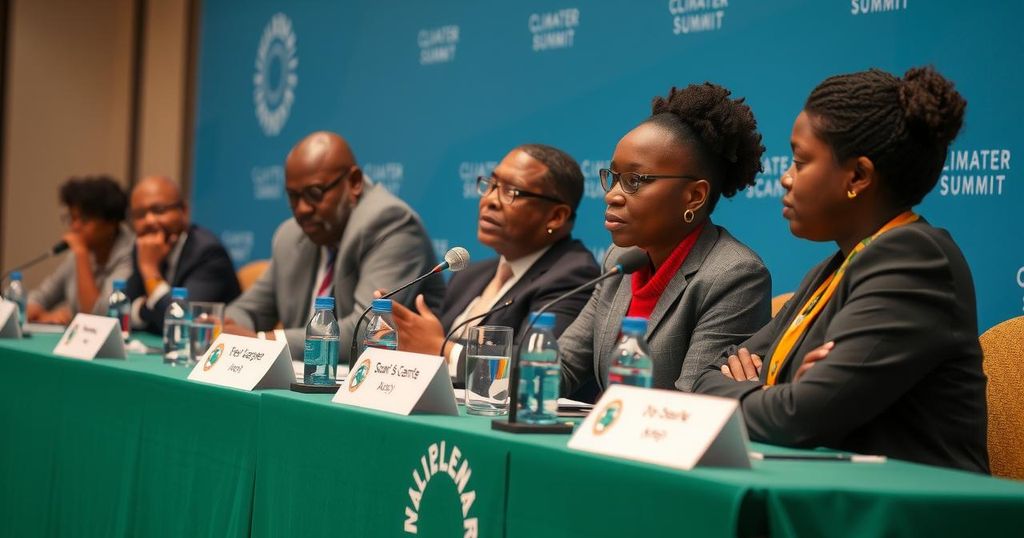Analysis of COP29: Africa’s Missed Climate Financing Goals

COP29 failed to meet Africa’s demand for $1.3 trillion annually in climate financing. The agreed $300 billion by 2035 falls short of needs. Issues include fossil fuel lobby influence, geopolitical tensions, and unclear loan structures. African nations are urged to leverage mineral resources for climate funding.
The recent COP29 climate conference failed to meet Africa’s critical financing demand of $1.3 trillion per year as pledged by developed nations. African leaders highlighted an urgent need for funds to address climate change effects. Although agreements were made to aim for $300 billion annually by 2035, this amount is grossly inadequate. Rising inflation threatens to diminish the real value of these funds, and concerns about the sources of this financing pose additional obstacles. The influence of fossil fuel lobbyists, geopolitical tensions, and ongoing humanitarian crises further complicated negotiations, sidelining Africa’s climate agenda. Going forward, Africa is encouraged to leverage its mineral resources in negotiations, pressing for much-needed adaptation funds to prevent future environmental disasters.
The COP29 conference represents a continuation of the global dialogue on climate change, wherein nations seek to address the pressing challenges posed by climate-related disasters. African nations have long been advocating for substantial financial assistance from wealthier countries to aid in climate mitigation and adaptation strategies. Their demand of $1.3 trillion reflects the dire realities they face in combating the effects of climate change, with developed countries historically falling short of their pledges. The situation at COP29 illustrates the complexity of international climate negotiations, with competing interests often derailing significant agreements.
In conclusion, the outcomes of COP29 have underscored the ongoing challenges in securing adequate climate funding for African nations. While there is a commitment from developed countries to meet funding targets, the actual financing remains insufficient for addressing the continent’s pressing climate needs. Moving forward, African nations must utilize their resources strategically to ensure that global climate negotiations yield actionable results and that their voices are effectively represented in these critical discussions.
Original Source: www.downtoearth.org.in






